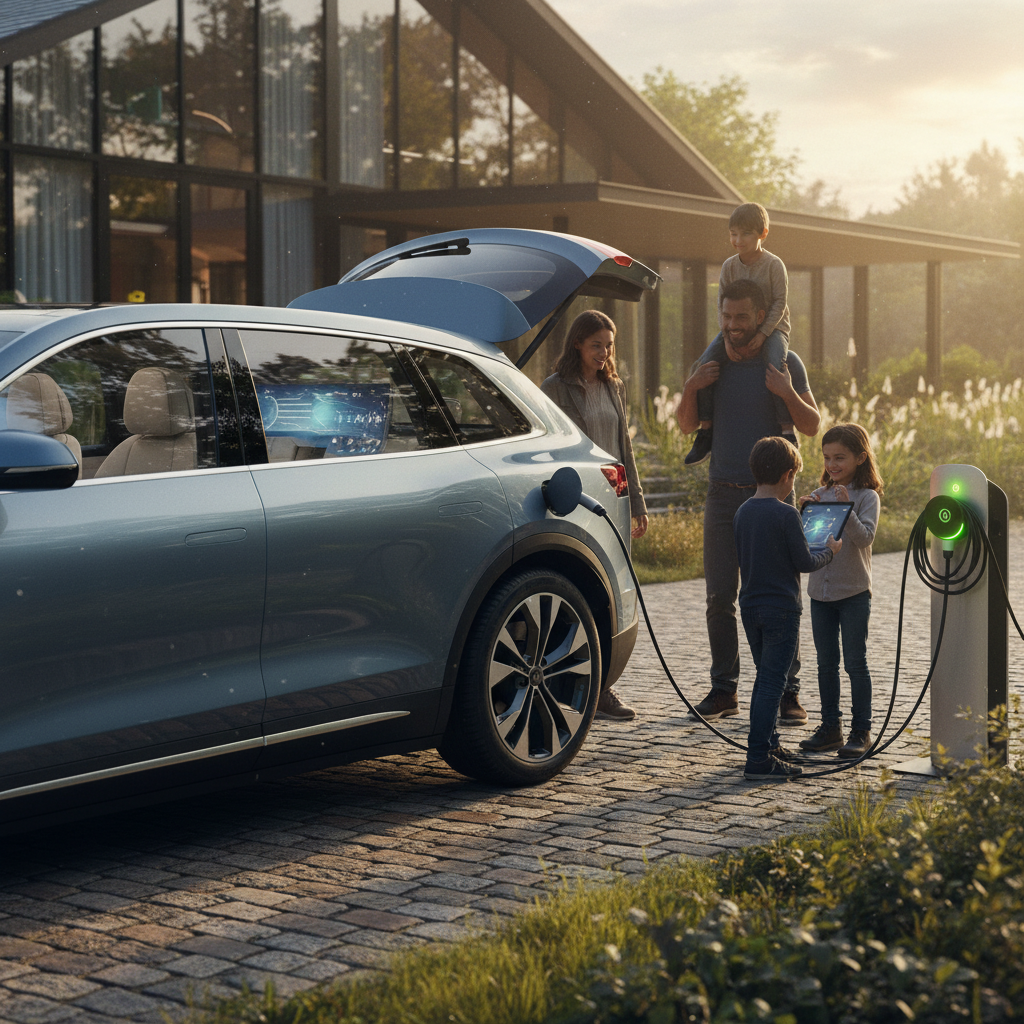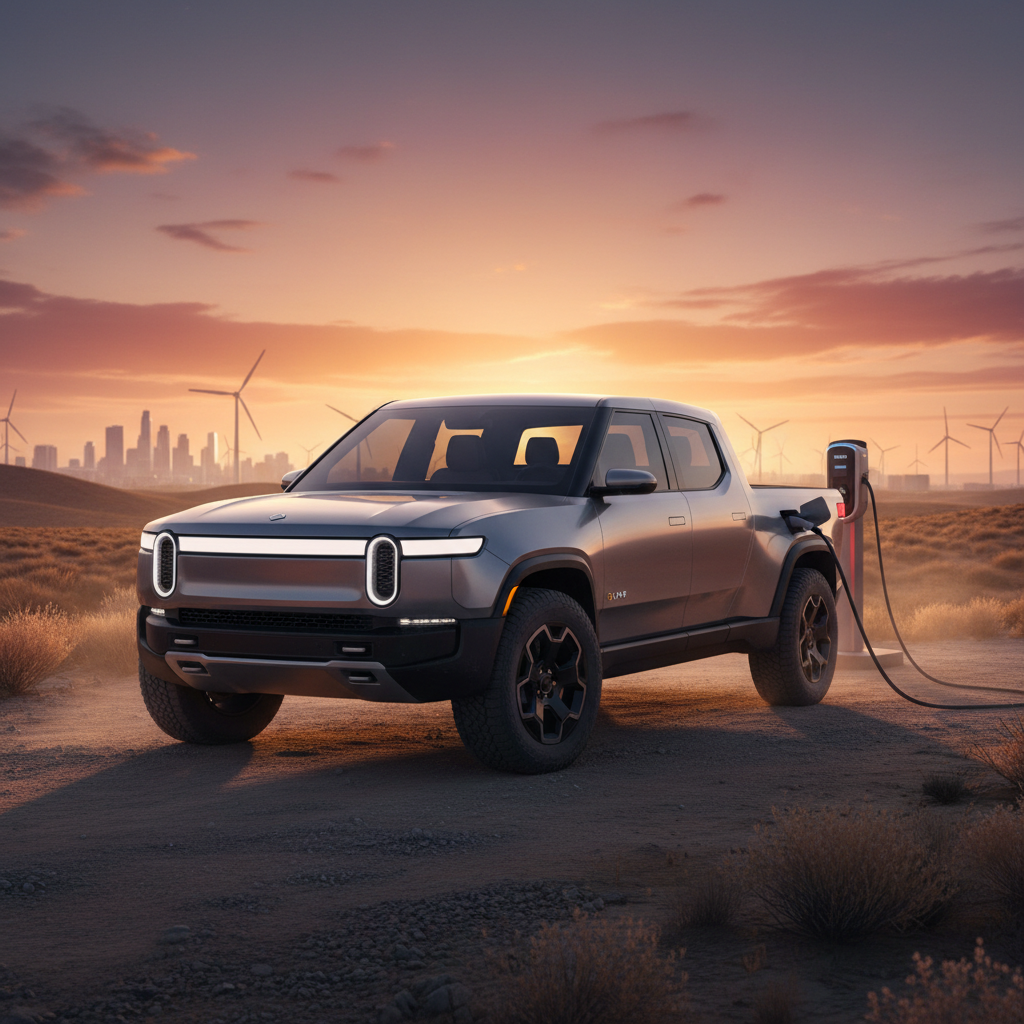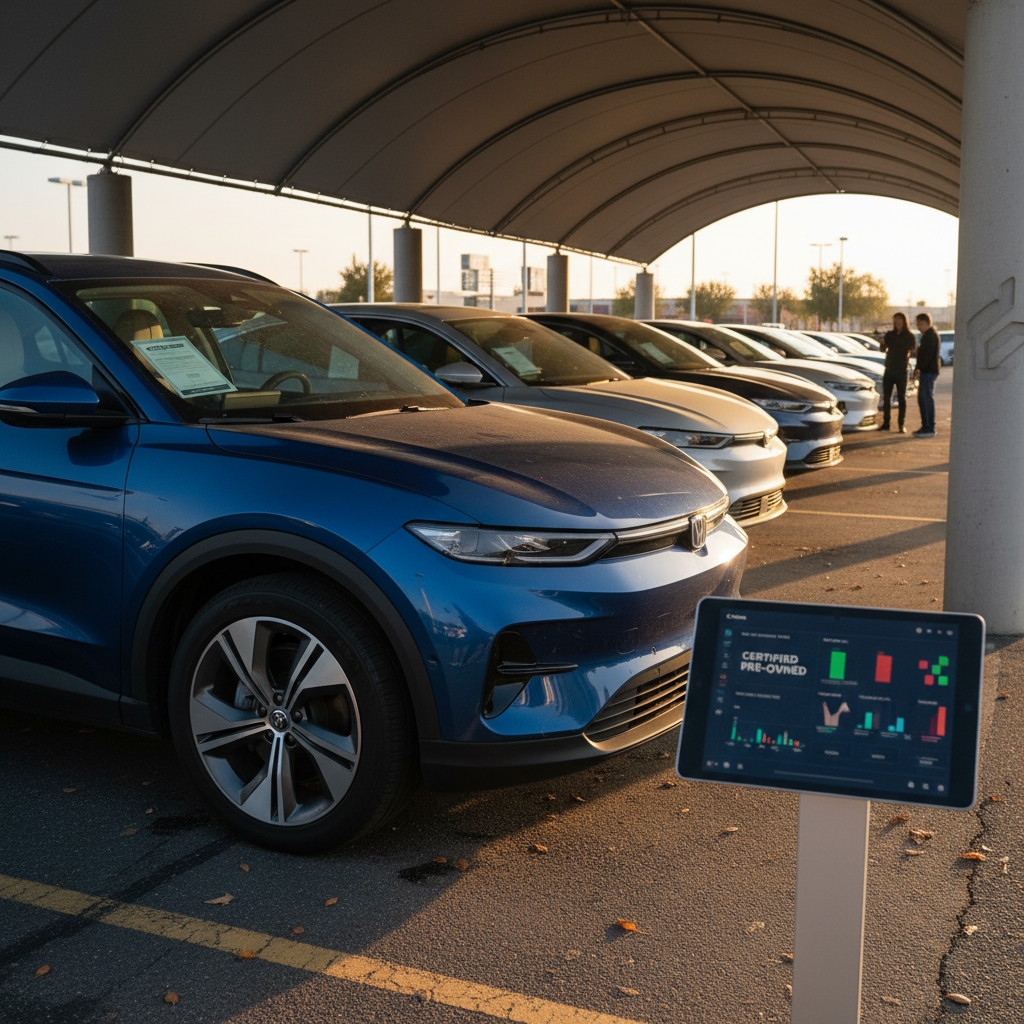If you’re shopping for a used Model 3 Long Range, you’re looking at one of the most sought‑after EVs on the market. Dual‑motor all‑wheel drive, excellent efficiency, and access to Tesla’s Supercharger network have made it the default choice for many first‑time EV buyers, and the used market is finally rich with options.
At a glance
Why the used Model 3 Long Range is so popular
When Tesla launched the Long Range version of the Model 3 in 2017, it essentially set the benchmark for an everyday electric sedan: roughly 300+ miles of EPA‑rated range, compact dimensions, and sports‑sedan acceleration. Today, a used Model 3 Long Range still out‑ranges many new EVs while often costing less than a well‑equipped compact luxury car.
Core advantages of a used Model 3 Long Range
Why it keeps showing up on "best used EV" lists
Strong range
Depending on year and wheel size, an EPA rating typically in the 310–358 mile range when new, with many owners still seeing excellent real‑world highway numbers years later.
Performance
Dual‑motor all‑wheel drive and instant torque give you roughly 4.0–4.4 second 0–60 mph times in most Long Range trims, quicker than many sport sedans.
Charging ecosystem
Access to Tesla’s Supercharger network plus widespread Level 2 options makes road‑tripping easy compared with many non‑Tesla EVs.
Model 3 Long Range vs Standard Range
Key specs and range by year
Before you shop, it helps to understand how the Model 3 Long Range has evolved. Tesla tweaks hardware and software frequently, so two cars that look identical on the outside can have different battery capacities, ranges, and features.
Model 3 Long Range: high‑level evolution
Approximate U.S. specs for popular model years. Exact figures vary with wheel size, options, and test cycles.
| Model year | Trim name (U.S.) | Battery (approx.) | EPA range when new* | 0–60 mph (approx.) | Notes |
|---|---|---|---|---|---|
| 2018 | Long Range RWD / Long Range AWD | ~75 kWh | ~310 miles | 4.8s (RWD) / 4.4s (AWD) | Early build years; some panel/alignment quirks more common. |
| 2019–2020 | Long Range AWD | ~75–78 kWh | ~310–322 miles | ~4.4s | First big production ramp; more inventory now at attractive prices. |
| 2021–2022 | Long Range AWD | ~82 kWh | ~330–358 miles | ~4.2s | Efficiency improvements and minor interior updates; very strong sweet spot for used buyers. |
| 2023 (pre‑refresh) | Long Range AWD | ~82 kWh | up to ~358 miles | ~4.2s | Incremental updates; end of the “pre‑Highland” body style. |
| Late 2023–2025 | Long Range AWD (refresh) | ~78 kWh (new pack) | EPA ratings still strong; real‑world similar | 4.2–4.4s | “Refresh” Model 3 (often called Highland) with updated interior and styling. Still rare on used market. |
Use this as a directional guide rather than a VIN‑specific spec sheet.
About those range numbers
Battery life, degradation, and warranty coverage
The heart of any used EV purchase is the battery. The good news: Tesla packs have generally aged very well, especially in Long Range configurations. The key is to understand what kind of degradation is normal and how much warranty remains on the car you’re looking at.
Battery and warranty basics for Model 3 Long Range
Every Model 3 Long Range comes with a Battery and Drive Unit Limited Warranty that runs for 8 years or 120,000 miles, whichever comes first, with a guarantee that the pack retains at least 70% of its original capacity during that window. Many 2018–2019 cars are already approaching the end of their battery warranty; later cars have more coverage left.

How to quickly sanity‑check battery health
Real‑world range and charging experience
For most used buyers, the real question isn’t “What was the EPA rating when this car was new?” It’s “How far will this used Model 3 Long Range actually go for me, with my commute and my weather?”
Real‑world range expectations
- Everyday mixed driving: Many owners see roughly 230–280 miles per full charge on older Long Range cars, and more on newer, low‑mileage examples.
- Highway at 70–80 mph: Expect somewhat lower numbers. High speeds and cold temps are the two biggest range killers.
- Cold‑weather use: In winter, especially under 32°F, plan for a meaningful range hit unless you precondition and use seat/steering‑wheel heat instead of blasting cabin heat.
Charging experience
- Home Level 2: With a 240V outlet and 40–48A charging, many Model 3 Long Range owners regain 30–40 miles of range per hour at home.
- Supercharging: Modern Long Range cars can accept up to 250 kW on compatible Superchargers, allowing 10–80% fast charges in well under an hour in ideal conditions.
- Public Level 2: J1772 adapters are included from Tesla; you simply plug into most non‑Tesla AC stations.
Highway road‑trip rule of thumb
Pricing: what you should expect to pay
Used pricing for the Model 3 Long Range varies significantly by year, mileage, condition, and options, and it also moves with Tesla’s frequent new‑car price changes. Instead of chasing exact dollar figures that may be outdated next month, focus on the factors that move the needle on value.
- Earlier build years (2018–2019) with higher mileage often transact at a substantial discount but may be near or past battery warranty expiration.
- 2020–2022 cars with 30k–60k miles tend to hit the best balance of price, remaining warranty, and updated hardware.
- Refresh (late‑2023+) Long Range cars are still relatively scarce in the used market and typically command a premium.
- Options like Enhanced Autopilot or Full Self‑Driving can add asking price, but their real value depends on how much you care about those features and how long you’ll keep the car.
Use "price per remaining warranty mile"
Common issues to watch for on used Model 3s
The Model 3 has earned a reputation for solid drivetrains and efficient batteries, but like any mass‑produced car, it has its quirks, especially in early build years. None of these are automatic deal‑killers, but you should be aware of them and factor potential repairs into your budget.
Typical trouble spots on used Model 3 Long Range
What to look for during your search
Body & trim
- Panel gaps & paint: Early cars in particular sometimes left the factory with uneven gaps or thin paint in high‑impact areas.
- Door handles & seals: Check that handles present smoothly and that seals aren’t torn or excessively noisy on the highway.
Climate & glass
- Wind noise: Test at 65–75 mph for excessive wind noise from frameless windows.
- HVAC performance: Make sure heat and AC respond quickly; listen for unusual noises from the heat pump on newer cars.
Suspension & tires
- Tire wear: EV torque is hard on tires; check for inner‑edge wear, especially on lowered cars or those with aftermarket wheels.
- Squeaks & clunks: Listen over speed bumps and rough pavement for noises from control arms or links.
Electronics & software
- Screen & cameras: Confirm that the center screen, backup camera, and side cameras all work without glitches.
- Feature set: Note which driver‑assist features are active on the car, Autopilot, Enhanced Autopilot, or FSD, and confirm they match the listing.
Walk away if you see this
Inspection checklist for a used Model 3 Long Range
A well‑structured inspection is your best defense against surprises. You don’t need to be a Tesla engineer; you just need to follow a disciplined process and, ideally, back it up with a proper battery‑health report.
Step‑by‑step inspection checklist
1. Confirm build details from the VIN
Use the VIN and the in‑car software screen to confirm <strong>model year, trim, drive type, and battery warranty start date</strong>. Make sure the listing matches reality.
2. Review exterior and glass
Walk around the car in good light. Check for mismatched paint, overspray, uneven gaps, curb‑rashed wheels, and chips or cracks in the windshield and roof glass.
3. Check interior wear points
Inspect the driver’s seat bolsters, steering wheel, center armrest, and door panels. Heavy wear here on a low‑mileage car can signal harder use than the odometer suggests.
4. Drive on mixed roads
On your test drive, include city streets and highway. Listen for squeaks, rattles, or suspension noises and feel for vibrations under braking or at speed.
5. Test charging and charge port
If possible, plug into a Level 2 station or home EVSE. Confirm that the charge port door opens cleanly, the cable locks in place, and charging starts without errors.
6. Get a battery health report
Ask for a <strong>third‑party battery health report</strong> or a Recharged Score that includes depth‑of‑discharge history, DC fast‑charge usage, and estimated remaining capacity, not just a screenshot of the dash.
Buying direct from Tesla vs a marketplace like Recharged
Once you’ve decided a used Model 3 Long Range fits your life, the next decision is where to buy it. Tesla sells its own used inventory, while a growing set of EV‑focused marketplaces, like Recharged, offer cars sourced from owners, fleets, and trade‑ins.
Buying a used Model 3 from Tesla
- Limited but curated inventory; you’re mostly choosing from what Tesla happens to have at the moment.
- Vehicles typically receive a basic inspection and any required recalls before delivery.
- Pre‑Owned Vehicle Limited Warranty coverage may apply, but terms vary by age and mileage.
- Shopping and delivery are highly digital, though test‑drive opportunities can be limited depending on location.
Buying from Recharged
- Recharged Score battery diagnostics give you a transparent view of pack health and charging history.
- Fair market pricing tools show how the car compares with similar Model 3 Long Range listings nationwide.
- Options for trade‑in, instant offer, or consignment if you’re also selling a vehicle.
- Nationwide delivery and an EV‑specialist team to walk you through charging, incentives, and ownership questions.
Who benefits most from Recharged
How Recharged de‑risks a used Model 3 Long Range
Because EVs are so dependent on their batteries and software, a traditional used‑car checklist isn’t enough. Recharged was built specifically to make used EV ownership simpler and more transparent.
What you get when you buy a Model 3 Long Range through Recharged
Beyond the typical used‑car experience
Recharged Score battery report
An in‑depth diagnostic that looks at pack health, charging patterns, and projected remaining life, going far beyond a simple "range at 100%" screenshot.
Financing built for EVs
Competitive financing options, plus the ability to trade in your current vehicle or get an instant offer, all handled in a mostly digital experience.
Nationwide delivery
Door‑to‑door delivery options so you can shop from a wider pool of Model 3 Long Range inventory instead of being limited to what’s on your local lot.
EV‑specialist support
Access to EV‑savvy specialists who can talk through home charging, road‑trip planning, battery care, and whether a given car’s features fit your use case.

Frequently asked questions about used Model 3 Long Range
Used Model 3 Long Range FAQ
Bottom line: who a used Model 3 Long Range is (and isn’t) for
A used Model 3 Long Range is a compelling choice if you want long‑range electric driving, strong performance, and a mature fast‑charging network without paying new‑car money. It shines for commuters with longer drives, frequent road‑trippers, and anyone who wants a single car that can handle both daily duty and cross‑country travel.
It may not be ideal if you almost never drive long distances, live where charging options are extremely limited, or simply prefer a higher‑riding SUV. In those cases, a Standard Range Model 3 or a different used EV might make more sense.
If you decide a used Model 3 Long Range fits your life, focus on battery health, remaining warranty, and a clean history, and consider letting Recharged handle the heavy lifting. With a Recharged Score battery report, EV‑savvy support, and financing and trade‑in options under one roof, you can spend less time worrying about what you might be missing and more time enjoying the drive.



